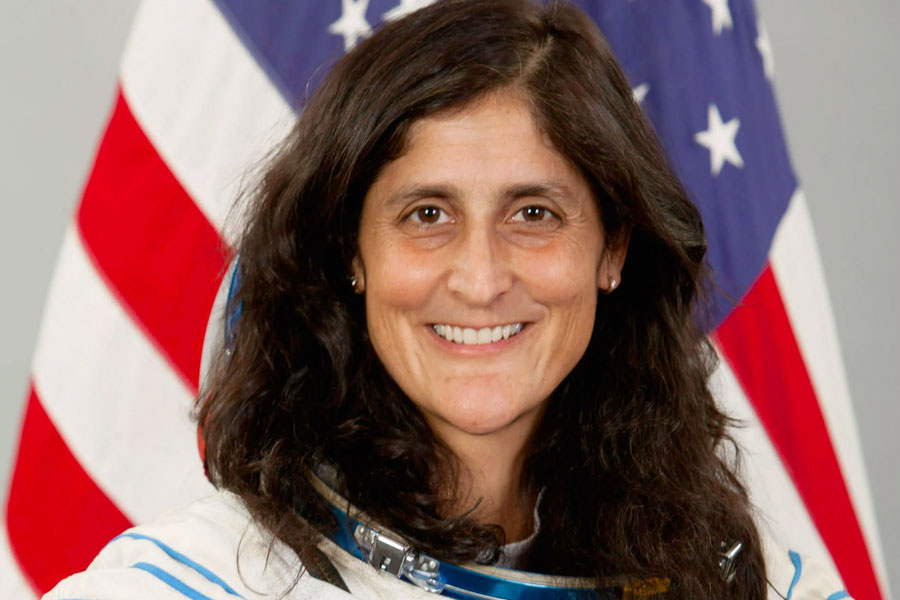 Thursday, 13 March 2025
Thursday, 13 March 2025
 Thursday, 13 March 2025
Thursday, 13 March 2025
The war between Russia and Ukraine, the deadliest conflict Europe has seen since World War II, marks its 1,000th day today. Over one million people have reportedly either died or have been grievously injured since the beginning of the war. UN estimates suggest that Ukraine's population has declined by over 10 million people, which is around a quarter of its overall population, suggesting that 25 per cent of the population has been wiped out.
The loss of human life and material wealth keep mounting in a never-ending series of heartbreaking stories emerging from the war-torn country.
On the landmark day, Ukraine stood firm and pledged continued resistance, while Russia vowed to achieve victory by any means in the ongoing conflict. Russian President Vladimir Putin signed a decree expanding the scope for "when Moscow will consider using nuclear weapons," in a clear warning to Ukraine and the West.
The war began with a deadly Russian drone strike in the Sumy region of eastern Ukraine. The attack targeted a residential building, resulting in at least nine fatalities, including a child. Ukrainian President Volodymyr Zelensky shared images of the devastation and called for increased international support to pressure Russia toward peace.
Around a fifth of Ukraine's internationally recognized territory is currently under Russian control, reports AP. These shifting boundaries are in constant flux, and the closer someone is to them, the greater the danger to their life.
Immediately after the Russia-Ukraine conflict began, the India-Russia entente went several notches higher as commercial relations between the two countries expanded significantly.
India’s imports of crude oil from Russia increased nearly 13-fold, from less than $2.5 billion in 2021-22 to over $31 billion in 2022-23. Russia became India’s second largest source of crude oil imports with a share of 19.1 percent.
In April 2023, Russia was India’s largest source of crude oil imports with a share of almost 33 percent and was the second largest import source overall with a 10 percent share. Russia’s share in India’s imports catapulted from 2.1 percent (in March 2022) to double digits.
India’s oil imports from Russia clearly provided a win-win situation for both countries. Reeling under sanctions, Russia – the third largest producer of crude oil – lost a large share of its export market, especially in Europe, which accounted for nearly a half of its exports at the beginning of 2022. This was when India stepped up its imports of crude oil from Russia, taking advantage of the hefty discount on offer.
In a boost for the beleaguered country, US President Joe Biden gave the green light for US missiles to be used against targets deeper inside Russia, potentially limiting its options to launch attacks and supply the front.
In the first year after the invasion, Ukrainian troops pushed Russian forces back from the outskirts of Kyiv and recaptured swathes of territory with surprise military successes against a larger and better-armed foe.
But since then, the enemies have settled into relentless trench warfare that has ground eastern Ukrainian cities into dust. Russian forces still occupy a fifth of Ukraine and for the past year they have slowly but steadily gained ground.
According to a Reuters report, tens of thousands have perished in intense fighting across heavily fortified front lines under relentless artillery fire, with tanks, armoured vehicles and infantry mounting assaults on trenches. The report also states that both sides closely guard tallies of their own military losses as national security secrets, and public estimates by Western countries based on intelligence reports vary widely.
Already boosted by Iranian attack drones and North Korean artillery shells, and ballistic missiles, Russia has now deployed 11,000 North Korean troops, some of whom Kyiv says have clashed with Ukrainian forces who have seized a part of Russia’s Kursk region. One senior Kyiv official said Pyongyang had the capacity to send 100,000 soldiers.
Ukraine meanwhile has some of its best troops trying to hold, opens new tab that small piece of Russian territory, captured in August as a bargaining chip.
Kyiv says Russia has massed 50,000 troops there, while the Kremlin’s forces have also been making their quickest gains since 2022 in the east of Ukraine, and stepping up pressure in the northeast and southeast too.
With winter setting in, Moscow on Sunday renewed its aerial assault on Ukraine’s struggling power system, firing 120 missiles and 90 drones in the biggest barrage since August.
President Volodymyr Zelenskiy said last week that Ukraine must do its best to end the war next year, through diplomatic means. But publicly there has been no narrowing of the gulf in the enemies' negotiating positions.
Kyiv has long demanded full Russian withdrawal from all occupied territory, and security guarantees from the West comparable to membership in NATO’s mutual defence treaty, to prevent future Russian attacks.
The Kremlin says Ukraine must drop all ambitions to join NATO and withdraw its troops entirely from the provinces Russia claims to have annexed since its invasion.
There are signs beyond just the return of Trump that the West is preparing for talks. German Chancellor Olaf Scholz called Putin on Friday for the first time in nearly two years.
Zelenskiy said that move reduced the Russian leader’s isolation. There must be no repeat of the negotiation process that brought a ceasefire to an earlier conflict a decade ago, he said. Those talks left Ukraine without guarantees to prevent an all-out attack.
“What we need is real peace.”
In 2022, Ukraine's economy shrunk by nearly a third (33 per cent) of what it used to be before the war. In 2023 however, the war-torn country made a marginal comeback and managed to reduce the economic losses to roughly 22 per cent of its original size.
As per a Reuters report, the latest available assessment by the World Bank, European Commission, United Nations and Ukrainian government found that direct war damage in Ukraine had reached $152 billion as of December, 2023, with housing, transport, commerce and industry, energy and agriculture the worst-affected sectors.
The total cost of reconstruction and recovery was estimated by the World Bank and Ukrainian government at $486 billion as of the end of December last year. The figure is 2.8 times higher than Ukraine's nominal gross domestic product in 2023, according to economy ministry data.
Ukraine's power sector has been particularly hard hit, with Russia regularly targeting infrastructure in long range attacks. Ukraine is also one of the world's main sources of grain, and the interruption of its exports early in the war worsened a global food crisis. Exports have since largely recovered with Ukraine finding ways to circumvent a de facto Russian blockade.
Each day the war is costing Kyiv more than $140 million, Roksolana Pidlasa, head of Ukraine parliament's budget committee, said. The draft 2025 budget envisages that about 26 per cent of Ukraine's GDP, or 2.2 trillion hryvnias ($53.3 billion), would go on defence. Ukraine has already received more than $100 billion from its Western partners in financial aid.







